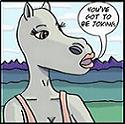(Thread IKs:
skooma512)
|
i am harry posted:https://apnews.com/article/kentucky-school-bus-delays-jefferson-louisville-8a8e37aa62012c4f53d8d3ddf06dcac9 I hope to god that it comes out that AI was involved in creating the routes.
|
|
|
|

|
| # ? May 25, 2024 00:17 |
|
There are still waves of layoffs happening, it's all public, anyone can see if they look it up, how are the bootlickers getting these rosy figures
|
|
|
|
poo poo jobs up, tolerable jobs down Lowest unemployment in years!!!!
|
|
|
|
remember in 2009 when they talked about a jobless recovery? well it's like that
|
|
|
|
loquacius posted:Question for the thread: I've been having a rough time dealing with all the political messaging around the economy being unstoppable right now, due to my personal experience of being unemployed for months and having the hardest job search of my career because the market is flooded with tens of thousands of people who got very publicly laid off this year. Like, it's very obviously not true that unemployment is at its lowest value in decades, because if it was, I wouldn't be struggling to get a job with ten years of experience in my field, and being told by recruiters that it's because there are so many strong applicants in a very competitive market, and seeing nothing but similar stories from other people. The recent reports have shown a ton of part-time jobs being created, while full-time roles were down or stagnant. Also, the covid pandemic fundamentally altered the workforce. It forced a ton of older workers out (whether due to death, disability, or more often people just deciding it was time to stop working and enter de facto retirement). The impact was much greater on places like meat processing plants, whereas a lot of white color workers just went remote rather than quitting or dying. Anyway, the point is that those old or disabled people don't count as unemployed even if they would prefer to be able to work unless they are actively seeking work. On top of all that, unemployment has always been defined narrowly to keep the Bad Number as small as possible. It's a cooked figure. Not necessarily in a "new" way, it's just been like that for ages now. You don't count as unemployed if you are scraping by on gig work and part-time scraps, which is a huge sector of the economy.
|
|
|
Xaris posted:I talked about the ideology of 90s movies before but this is basically a very 90s thing. basically a ton of well-to-do middle class insurance adjusters or w/e having existential crises about "what is life, is this what i'm supposed to be doing?" there's so many Ah yes, the 1999 Middle Class Angst Quadrilogy: Fight Club, American Beauty, The Matrix, and Office Space
|
|
|
|
|
skooma512 posted:Ah yes, the 1999 Middle Class Angst Quadrilogy: Fight Club, American Beauty, The Matrix, and Office Space only one of those movies holds up. also you just inadvertently quoted like 35 million millenial dudes okcupid profile lol
|
|
|
|
idk i think office space makes fun of the angst you can just read graeber instead now though
|
|
|
|
loquacius posted:Question for the thread: I've been having a rough time dealing with all the political messaging around the economy being unstoppable right now, due to my personal experience of being unemployed for months and having the hardest job search of my career because the market is flooded with tens of thousands of people who got very publicly laid off this year. Like, it's very obviously not true that unemployment is at its lowest value in decades, because if it was, I wouldn't be struggling to get a job with ten years of experience in my field, and being told by recruiters that it's because there are so many strong applicants in a very competitive market, and seeing nothing but similar stories from other people. Prof Wolff has the breakdown. First 6 minutes or so. https://www.youtube.com/watch?v=sZqyx7YpsKQ
|
|
|
|
Ammanas posted:only one of those movies holds up. fight club is still a good movie if you completely separate it from the ensuing decades of cringe shoulda adapated Guts instead
|
|
|
|
I unironically still like all those movies lol.
|
|
|
|
Thanks guys. This all helps a lot 
|
|
|
|
Engorged Pedipalps posted:fight club is still a good movie if you completely separate it from the ensuing decades of cringe I still hope that one day they’ll do Survivor but a protagonist who hijacks a plane is probably an eternal no no.
|
|
|
|
Here's what the DoL says about who's getting the new jobs:quote:In July, health care added 63,000 jobs, compared with the average monthly gain of
|
|
|
|
holefoods posted:I still hope that one day they’ll do Survivor but a protagonist who hijacks a plane is probably an eternal no no. Has anyone made the DB Cooper story into a movie?
|
|
|
|
https://twitter.com/CNBC/status/1689823988682280960?s=20
|
|
|
|
skooma512 posted:Ah yes, the 1999 Middle Class Angst Quadrilogy: Fight Club, American Beauty, The Matrix, and Office Space interesting that these prefigured the eventual lines of flight for a lot of dissatisfied people in response to the villain they all share (the anomie induced by algorithmic capital). in order, we have becoming a RETVRN groyper, becoming a FYGM grill-pilled suburban CHUD, becoming a queer militant, and coming to the realization that being a computer touching seat filler is vastly inferior on a moral and psychic level to actually being materially productive and learning useful capital L Labor skills.
|
|
|
|
This popped up in my google feed: https://www.theatlantic.com/ideas/archive/2023/08/rural-montana-housing-crisis-supply/674950/ quote:In 2015, a physical therapist named Nathan Dugan moved to Whitefish, Montana, and fell in love with the place. How could you not? The glaciers, the pine air, the small-town feel. Whitefish was always expensive: When he first got there, Dugan camped on and off for a month before he found an affordable home. But it got far more expensive during the pandemic, when wealthy retirees and digital nomads flooded the tiny town’s tiny housing market. Out-of-staters were making cash offers on homes, sight unseen. Airbnbs started going for Bay Area prices. Rentals dried up. This has become a familiar story across America, where the housing crisis has gotten so severe that even rural communities in northern Montana are feeling the pinch. I hope this isn't a preview of the "solution" for the housing crisis. Not having single-family zoning is a fine starting point, but it seems like nothing is gonna be done about standards for the eventual units or Airbnb/wealthy out of staters from buying everything that isn't an apartment
|
|
|
|
loquacius posted:Question for the thread: I've been having a rough time dealing with all the political messaging around the economy being unstoppable right now, due to my personal experience of being unemployed for months and having the hardest job search of my career because the market is flooded with tens of thousands of people who got very publicly laid off this year. Like, it's very obviously not true that unemployment is at its lowest value in decades, because if it was, I wouldn't be struggling to get a job with ten years of experience in my field, and being told by recruiters that it's because there are so many strong applicants in a very competitive market, and seeing nothing but similar stories from other people. Source: They made it the gently caress up THEY ALL DO
|
|
|
|
Hope?
|
|
|
|
why even have online applications at this point jesus loving christ
|
|
|
|
there are a lot of jobs where folks can’t afford to live off those jobs.
|
|
|
|
offer somebody with an Associates Degree in IT a Custodial job because this is georgia
|
|
|
|
AloePieceOfShit posted:This popped up in my google feed: i like it treating "building our way out of a housing shortage" as a bad thing is weird asf
|
|
|
|
one can get a 20 an hour job here, but one cannot live or commute on 20 an hour here.
|
|
|
|
Heck Yes! Loam! posted:Has anyone made the DB Cooper story into a movie? 
|
|
|
|
skooma512 posted:Ah yes, the 1999 Middle Class Angst Quadrilogy: Fight Club, American Beauty, The Matrix, and Office Space
|
|
|
|
the 90s were building towards the peak of the dotcom bubble so it's not terribly surprising there's a lot more cynicism about the 2019-2021 zirp meme bubbles so, again, not terribly surprising that we're not seeing a comparable cultural output here. instead it's all mutant apes and bitcoin and GME
|
|
|
|
|
AloePieceOfShit posted:Politics, for once, helped too. Montana had lower housing prices and fewer roadblocks to development than other states to begin with. Republicans with a strong libertarian streak, like Gianforte himself, are a powerful bloc, and happen to be the kind of folks thrilled to slash red tape. Joining them were anti-sprawl environmentalists, student activists, urban-density advocates, real-estate developers, and antipoverty liberals, creating a coalition spanning from the far left to the far right. The fact that Gianforte pushed so hard on the issue and that Montana’s legislature meets only once every two years put more pressure on those elected officials to get something big done. Love 2 see cross-partisan alliances.
|
|
|
|
loquacius posted:Question for the thread: I've been having a rough time dealing with all the political messaging around the economy being unstoppable right now, due to my personal experience of being unemployed for months and having the hardest job search of my career because the market is flooded with tens of thousands of people who got very publicly laid off this year. Like, it's very obviously not true that unemployment is at its lowest value in decades, because if it was, I wouldn't be struggling to get a job with ten years of experience in my field, and being told by recruiters that it's because there are so many strong applicants in a very competitive market, and seeing nothing but similar stories from other people. The numbers are all obvious bullshit and political propaganda for the rich, op, hth
|
|
|
|
quote:The average monthly rent in Manhattan rose to a record $5,588 in the month of July as inflation and higher interest rates push rental prices to new record levels, according to a report from Miller Samuel and Douglas Elliman.
|
|
|
|
https://twitter.com/unusual_whales/status/1689799260685094912?s=20
|
|
|
|
has this dude ever seen what the inside of the colosseum actually looks like
|
|
|
|
I am now convinced this world is a simulation of the dumbest possible reality and I must do everything I can to escape from it
|
|
|
|
holefoods posted:I am now convinced this world is a simulation of the dumbest possible reality and I must do everything I can to escape from it yea it sucks
|
|
|
|
mama mia
|
|
|
|
triple sulk posted:has this dude ever seen what the inside of the colosseum actually looks like I thought half the floor was restored to as it was in ancient times at least zucc, its in the colloseum, that means you have carte blanche my friend
|
|
|
|
https://www.youtube.com/watch?v=UNwaeUI4IRw Doug reviews a Chinese luxury car and is shocked that it looks as nice as anything Germany or Japan can make I'm excited to see more and more of this over the next decade
|
|
|
Xaris posted:not exclusively 1999 but in addition to the quadrilogy i also loop in groundhog day, being john malkovich, trainspotting, the burbs, office space, the game, maybe 13th floor, etc all in that 90s "life is good but im unsatisfied?!!? is this all there is?" hollow success existentialism Trainspotting has that in the opening and closing monologues, but I feel Trainspotting differs from the others in that other than the 2 monologues and voiceovers alluding to the boredom that drove them to do it, the film depicts the drug addicts and their lives aren't exactly great. They live in Scotland and it's shite, so they turns to drugs. Many of the other such movies are about people who actually do have it pretty good already and have that hollow success, which I suppose Trainspotting is an aspirational version of.
|
|
|
|
|

|
| # ? May 25, 2024 00:17 |
|
ty for proof that the p r e m i u m consumer remains healthy honestly dont know why they dont just charge like 10k a month for manhattan, rioch people will pay no matter what to live there apparently
|
|
|













































